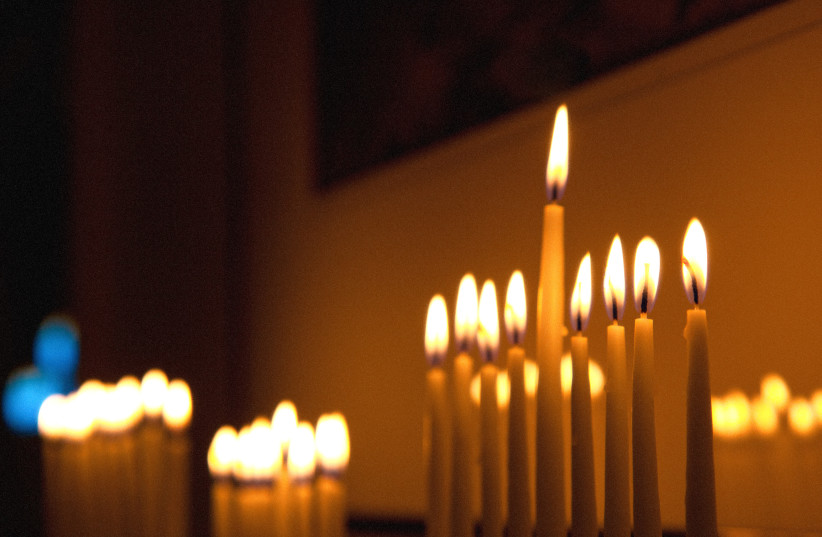It is not enough to place women in key positions. We need to listen to them, and they need to take their place, stand their ground, and shape a generation that will take all voices into account
Women’s Day 5784, this year’s Eid al-Banat, is going to be a particularly difficult one.
The festival takes place during Hanukkah on Rosh Chodesh Tevet (this year on December 13) to elevate the miracle of female strength: the courage, wisdom, and sisterhood of women throughout the generations.
In the Jewish tradition this festival is celebrated on the day Esther was crowned queen. And it especially celebrates the courage and wisdom of two other women: Judith, who seduced the enemy general Holofernes, then beheaded him and saved Jerusalem, and Hannah bat Matityahu, who inspired her Maccabee brothers to rebel against the Greeks.
This year, along with the lighting of the Hanukkah candles, we will also light memorial candles for our sisters who were brutally murdered, who were abused, and whose bodies were desecrated by our depraved enemies on October 7.

The heroism of Jewish women in history
Even in the midst of the atrocities, Jewish women rose up who heroically and brilliantly stood in the breaches, revealed great resourcefulness, and saved themselves and their friends. Best known among the many women and heroines are the Kibbutz Nir Am Security Coordinator, the Caracal battalion commander, and of course the all-female tank crews – alongside many more stories that have yet to be told.
We will also remember the young women who served as border lookouts. In the months leading up to the attack, they sounded the alarm, but their voices were not heard and were even silenced.
“You are the eyes, not the head,” they were told.
Woe to the ears that hear such blind arrogance.
We will also remember the commander of an intelligence team who firmly voiced her view that an attack was imminent, but whose warnings were not taken into account either.
Women also stand at the front of the inspiring mobilization of the Israeli spirit.
Where the state was slow to respond, women volunteers assembled homefront response initiatives across the entire country. With great compassion, they are leading the people of Israel through grief and despair until our deep pain will turn into joy, a holy day, and a beacon of light: Eid al-Banat 5784.
The heroism of the female fighters in this war silenced the arguments of those who object to the full integration of women in the IDF. However, the silencing of the voices of the lookouts indicates that there is a long way to go to change the worldview of policymakers in the IDF and other institutions. Here too, women have power and responsibility. Not only do we have to take our place and stand up for ourselves, but we must shape a generation that knows how to listen and take into account all voices.
From Queen Esther, we learn that it is not enough to put smart and talented women in key positions. You have to listen to them and their interpretation of the information they have gathered and deciphered. You must not only hear their voices but also listen to them.
Hannah bat Matityahu was about to be abandoned to be raped by the Greek governor on her wedding night, as were all Jewish brides at that time. Rather than face that violation in silence and shame, she ripped off her own bridal dress in front of all of her wedding guests as if to say: No more! This generation must rise up and fight its enemies, but first, it must change its perceptions that allow the humiliation of women, the abuse of their bodies, their souls, and their dignity. We must say: No more! Not in our homes, nor in our society as a whole.
The author is the founder of the national ‘Hebrew Calendar’ initiative and directs the DAYBREAK emergency grants program of the Shaharit Institute in partnership with the Fund for New Leadership.
